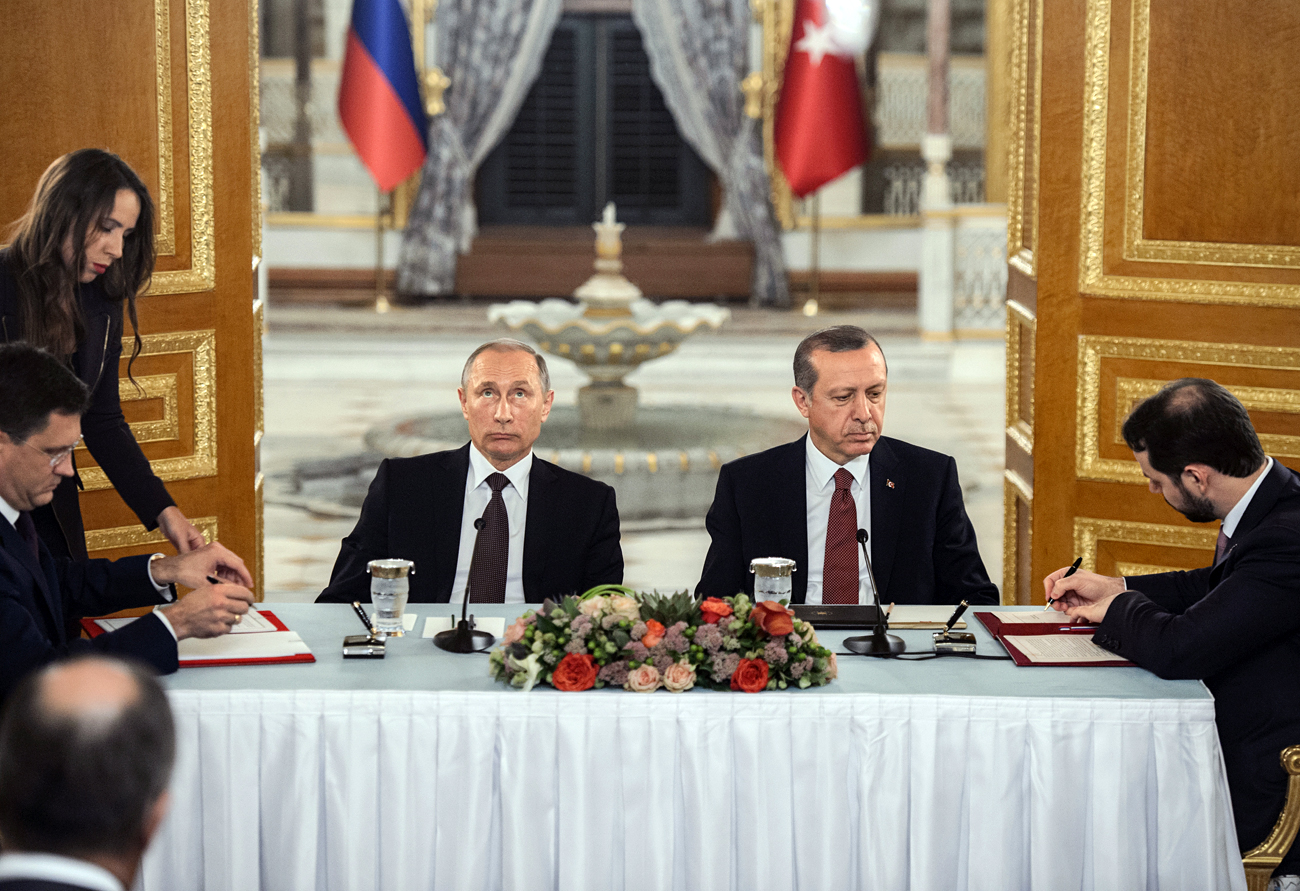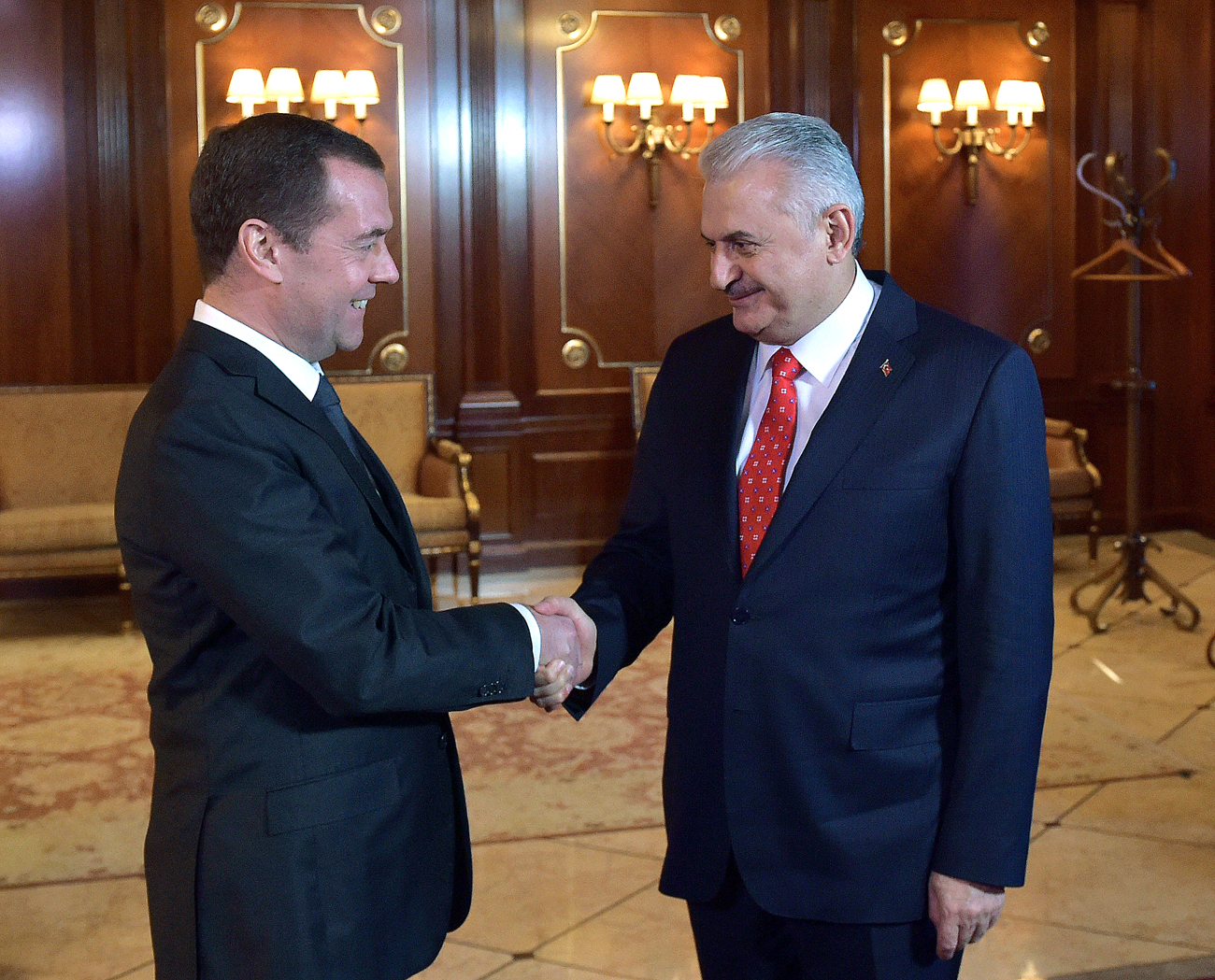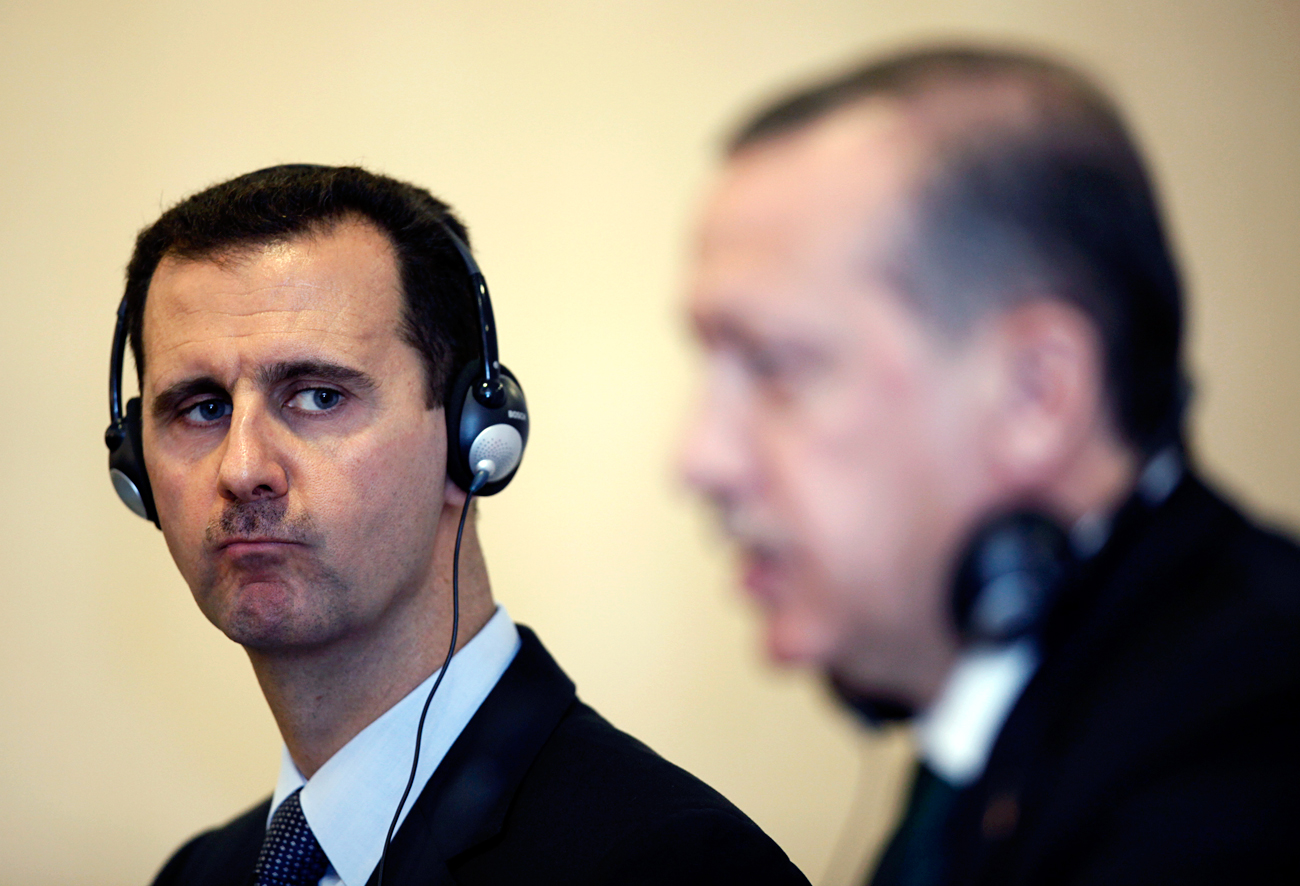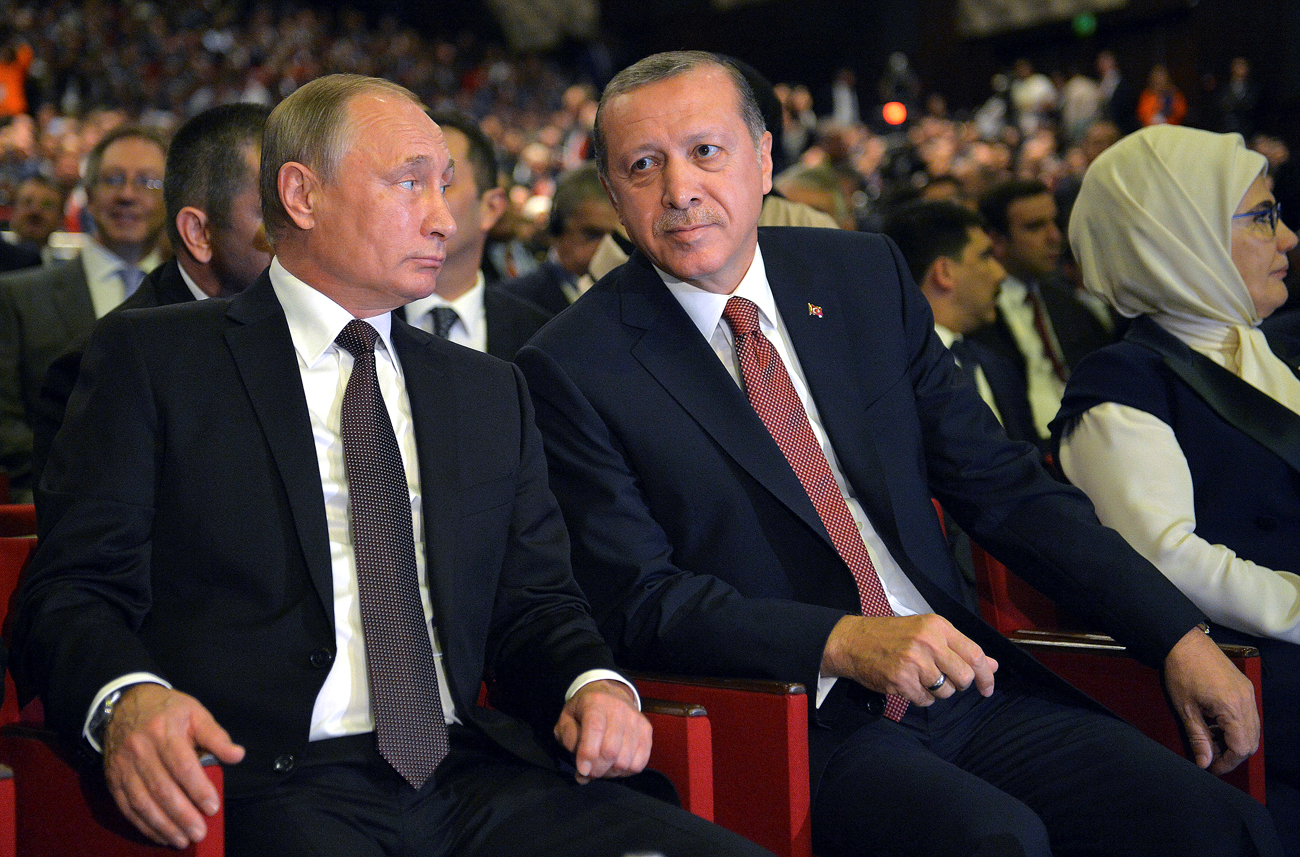Turkey mulling Eurasian integration as it rebuilds ties with Russia

Russia still maintains the ban on some Turkish exports, and the visa regime introduced for Turkish citizens has not been abolished yet. Photo: President Putin's visit to Turkey.
KommersantTurkish Prime Minister Binali Yildirim's visit to Moscow on Dec. 5-6 demonstrated Ankara's intention not only to restore its relations with Moscow, which had been undermined by the downing of a Russian Sukhoi Su-24 jet by the Turkish air force on Nov. 24, 2015, but also to bring these relations to a whole new level.
In particular, Yildirim stated that the two countries could and should bring the volume of bilateral trade to $100 billion (according to the Russian business daily Kommersant (in Russian), the figure stood at $23 billion in 2015). In the meantime, Turkish President Recep Tayyip Erdogan has ratified the agreement on building the Turkish Stream gas pipeline, the largest Russian-Turkish energy project ever.
 Russian Prime Minister Dmitry Medvedev and Turkish Prime Minister Binali Yildirim, right, during a meeting at the Gorki residence outside Moscow. Source: Alexander Astafyev/RIA Novosti
Russian Prime Minister Dmitry Medvedev and Turkish Prime Minister Binali Yildirim, right, during a meeting at the Gorki residence outside Moscow. Source: Alexander Astafyev/RIA Novosti
Problems still remain
On the other hand, it is too soon to say that Russian-Turkish relations have been fully restored. Russia still maintains the ban on some Turkish exports, and the visa regime introduced for Turkish citizens has not been abolished yet. The two countries' political views of the Middle East also differ: Russia supports Syrian President Bashar al-Assad, whereas Erdogan has been calling for the toppling of the current Syrian regime.
Russian experts note that Moscow views further restoration of its economic ties with Turkey in a political context.
“For as long as there remain unresolved political and security issues, it is too early to speak of a full restoration [of economic cooperation],” said Vladimir Avatkov, director of the Center for Middle East Studies, International Relations and Public Diplomacy.
According to Avatkov, it is precisely because of the continuing high terrorist threat in Turkey that Russia has not yet lifted the visa requirement. He also believes that the Syrian case is of particular importance to Moscow.
Cooperation to be restored gradually
Turkey has been suffering worse than Russia from the partial freeze on economic cooperation, according to Yury Mavashev, who heads the political department at the Center for Modern Turkish Studies: “According to our data, Moscow's losses from the food exports ban have been smaller than those incurred by Turkey. Russia has managed to find alternative suppliers,” he said.
Still, both countries realize that cooperation needs to be restored.
“If the statements made after the talks [between Yildirim and Russian officials] are anything to go by, the sides reached an agreement on when, and under what circumstances, the Russian sanctions on Turkey would be lifted,” said Mavashev.
Avatkov noted that, judging by the ratification of Turkish Stream, bilateral economic ties will be gradually restored.
Is Ankara making a ‘pivot to Eurasia’?
In parallel with improving its ties with Russia, Ankara has been experiencing a worsening of relations with the West, especially after the attempted coup in Turkey on July 15 and 16, 2016 and the arrests of opposition politicians and journalists that followed. The EU has criticized Erdogan's policy, threatening to impose sanctions on Turkey. Erdogan reacted by questioning the expedience of continuing the current dialogue on Turkey's possible accession to the EU.
On Nov. 20 Erdogan announced that instead of seeking EU membership, Turkey might join the Shanghai Cooperation Organization (SCO), in which the key role is played by Russia and China. Turkey is currently a dialogue partner in the SCO. As Russian experts see it, Erdogan is not just trying to bargain with Brussels this way: He may be actually considering a Eurasian future for his country.
“Ankara has been showing an interest in joining the SCO for some time now,” said Mavashev. “Turkey has never viewed itself as an exclusively Western country, this is evident both to the Europeans and to the Turks themselves.”
He believes Turkey's accession would benefit the SCO economically: “Turkey's potential is enormous, it can offer economic and human resources, transport corridors, hubs and transport junctions.”
Avatkov agrees: “Turkey has grown tired of knocking on the EU door. It is gradually becoming a more centrist country with interests lying both in the West and in the East. It perceives itself as a Eurasian center of gravity,” he said.
In Avatkov’s view, Ankara's departure from an exclusively pro-Western course could benefit Russia. There is, however, a risk of Turkey attempting to expand its role in post-Soviet countries such as Azerbaijan and the nations of Central Asia.
Read more: Turkish president signs bill to ratify Turkish Stream deal>>>
Subscribe to get the hand picked best stories every week
All rights reserved by Rossiyskaya Gazeta.
Subscribe
to our newsletter!
Get the week's best stories straight to your inbox

